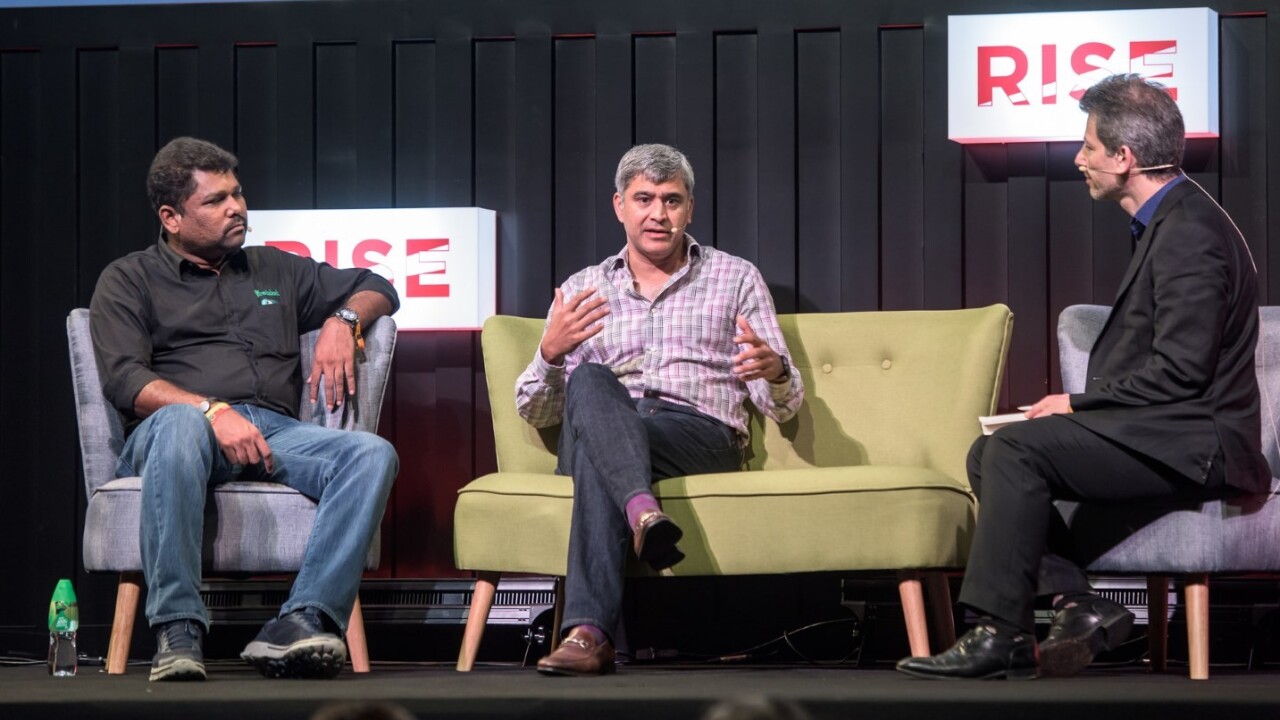
As robotics, automation and AI steadily improve, I’ve been thinking a lot about what will keep the human workforce busy in the years to come. How much longer will we need to park ourselves at our desks for hours on end in order to pay our bills?
At the Rise conference in Hong Kong yesterday, customer support service Freshdesk’s CEO Girish Mathrubootham and Google for Work president Amit Singh shared their thoughts on the future of productivity.
Singh believes that desktop apps are on their way out. “Sure, some people work on their desktops, but they’re increasingly getting more done on mobile devices. In the future, you’ll be spending even more time on them, away from your desk.”
Mathrubootham added to this with context from his company’s helpdesk service:
These days, we want to be able to access our customer support email from wherever you are. Traditional software chains you to your desk and require you to use a VPN when you’re on the move.
The convenience of working from anywhere that modern apps offer, is what is driving the shift from desktop-focused to mobile and cloud-based solutions.
Designing work apps for the future
Singh feels that new apps are more about collaboration for increased productivity and less about our contributions as individuals.

“The new sharing economy and the way millennials think, have combined to create a new collaborate work culture. We’re now working on the same files together and messaging each other all in one place. It’s more about real-time teamwork and transparency than individual effort,” he said.
Is there an end in sight for email?
There are some aspects of email as a method of communication that are useful, like searchability and keeping correspondence on record. But it won’t just vanish in the years to come — it’s more likely to evolve and adapt to our needs for faster and more streamlined collaboration.
Singh said, “There’s actually more email now than before, and more time spent on it. However, the way it’s being used is changing. It’s more about quick, real-time communication. For example, Inbox by Gmail is a step in that direction.”
Isn’t it risky for businesses to put all their data in the cloud?
Singh believes that cloud-based infrastructure can be trusted now and in the future:
The cloud is a lot more secure than companies’ own bespoke security infrastructure. We know what it takes to secure Google’s system. We’ve built everything from scratch, from our data centers to our platforms, and we spend a lot of time protecting our network.
Not to say that bad things can’t happen, but it takes a lot of time, money and effort to build secure solutions. The transition to cloud-based infrastructure will be because of security and not in spite of it.

Mathrubootham has faith in large-scale cloud-based systems. He said, “Where is your money safer, in your home or deposited in a bank? Cloud companies are in the business of selling data security, not just software. If we lost our customers’ data, we’d have to shut shop. So it’s important for us to focus on robust systems that are indeed secure.”
How is the way we work going to change in the next five years?
Singh predicts that AI-based assistants will play a big role in increasing human productivity:
We’ve been thinking a lot about the the increasing importance of mobility at work. We’re currently taking traditional data and tools and unlocking them from your desk. But creating an intelligent assistant that goes where you do and helps you out by surfacing data when you need it, in context, cognitive in real-time — I believe that’s the future.
The search giant acquired machine learning firm DeepMind last year to boost its AI efforts, so it’ll be interesting to see how Google follows up on Singh’s vision.
Mathrubootham articulated it quite simply: “90 percent of the world consumes while only 10 percent creates. Consumption of content has moved steadily into the cloud and onto mobile devices, while the tools for creation remain tied to desktops. That’s all going to move away from traditional computing devices to more personal, portable solutions by 2020.”
Read next: Want to compete with WhatsApp, Facebook and Line in messaging? Here’s how
Image credit: Rise Conference
Get the TNW newsletter
Get the most important tech news in your inbox each week.





